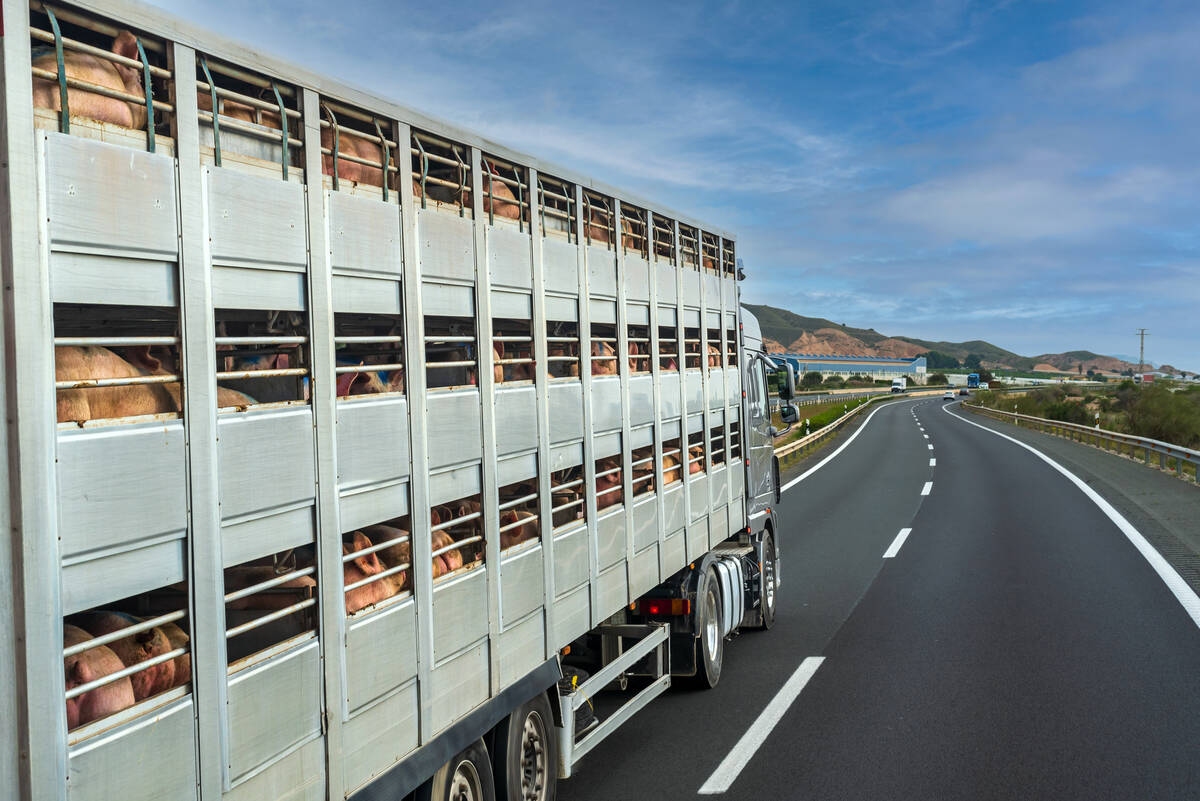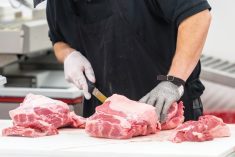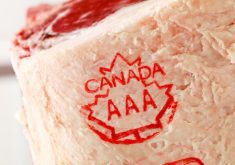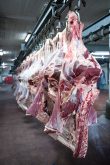The United States has blocked requests by Canada and Mexico for World Trade Organization experts to examine new U. S. labelling rules that the two U. S. neighbours say are hurting their meat exports.
Both Canada and Mexico told the WTO’s dispute settlement body that U. S. country-of-origin-labelling (COOL) rules – requiring meat sold in U. S. stores to show which country it comes from – were damaging North American trade.
“COOL is discouraging U. S. retailers, processors, feedlots and producers from buying Canadian livestock and meat. The negative impact on Canadian beef, pork and cattle exporters has been significant,” Canada said in a statement to the dispute body Oct. 23.
Read Also

Pig transport stress costs pork sector
Popular livestock trailer designs also increase pig stress during transportation, hitting at meat quality, animal welfare and farm profit, Agriculture and Agri-Food Canada researcher says
It noted that Canada and the United States are each other’s biggest agricultural trading partners, with two-way farm trade totalling $37 billion last year.
WTO rules allow the plaintiff in a dispute to reject the first request for a panel. But the requests are likely to go forward to the next meeting of the WTO’s dispute settlement body on Nov. 19, when the United States cannot block them again.
Mexico also said its exporters were suffering lower prices and uncertainty because of the COOL rules. But the United States said it believed the new labelling requirements were in line with WTO rules.
The meat-labelling dispute is another source of tension in U. S.-Canadian trade relations, already frayed by the U. S. “Buy American” program for government purchases.
The case is also a classic example of a non-tariff barrier – health, safety or consumer standards that can also result in imports being blocked.
Canada formally relaunched the dispute in May as Canadian producers said the new U. S. rules, tightened by the Obama administration, were hurting pig and cattle sales.
Canada normally exports about $4 billion of pigs and cattle to the United States.
In a similar move, the European Union rejected a call by the United States for a panel to examine an EU ban on imports of U. S. poultry treated with antimicrobial chlorine rinses.
But unusually, the EU accepted a first-time request by China for a WTO panel to review extra duties on imports of Chinese screws and bolts, agreeing that the dispute could not be settled any other way.


















